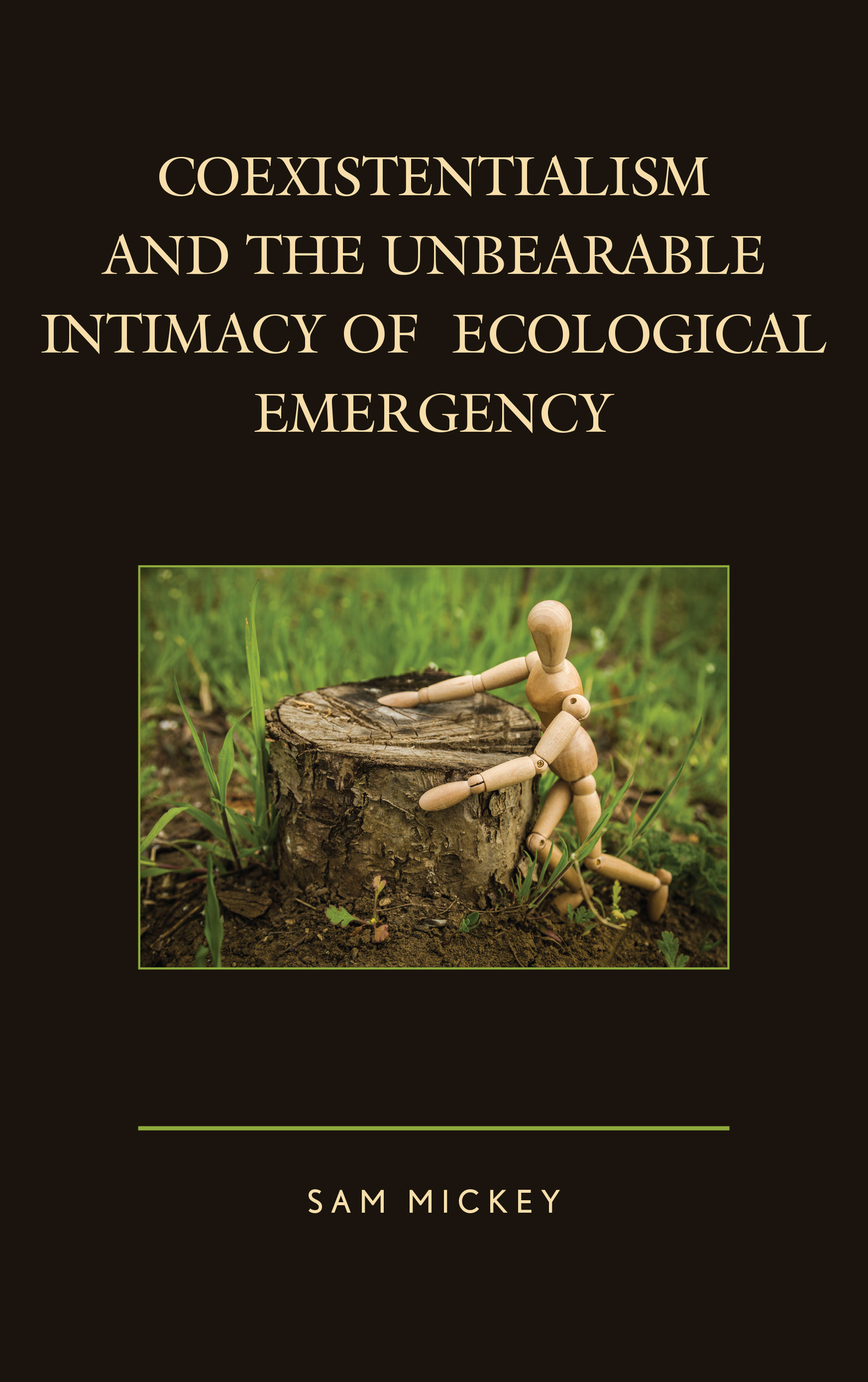Coexistentialism and the
Unbearable Intimacy of
Ecological Emergency
Ecocritical Theory and Practice
Series Editor: Douglas A. Vakoch, California Institute of Integral Studies, USA
Advisory Board: Joni Adamson, Arizona State University, USA; Mageb Al-adwani, King Saud University, Saudi Arabia; Bruce Allen, Seisen University, Japan; Hannes Bergthaller, National Chung-Hsing University, Taiwan; Zlia Bora, Federal University of Paraba, Brazil; Izabel Brando, Federal University of Alagoas, Brazil; Byron Caminero-Santangelo, University of Kansas, USA; Jeffrey J. Cohen, George Washington University, USA; Simo Farias Almeida, Federal University of Roraima, Brazil; Julia Fiedorczuk, University of Warsaw, Poland; Camilo Gomides, University of Puerto RicoRio Piedras, Puerto Rico; Yves-Charles Grandjeat, Michel de Montaigne-Bordeaux 3 University, France; George Handley, Brigham Young University, USA; Isabel Hoving, Leiden University, The Netherlands; Idom Thomas Inyabri, University of Calabar, Nigeria; Serenella Iovino, University of Turin, Italy; Adrian Ivakhiv, University of Vermont, USA; Daniela Kato, Zhongnan University of Economics and Law, China; Petr Kopeck, University of Ostrava, Czech Republic; Mohammad Nasser Modoodi, Payame Noor University, Iran; Patrick Murphy, University of Central Florida, USA; Serpil Oppermann, Hacettepe University, Turkey; Rebecca Raglon, University of British Columbia, Canada; Anuradha Ramanujan, National University of Singapore, Singapore; Christian Schmitt-Kilb, University of Rostock, Germany; Marian Scholtmeijer, University of Northern British Columbia, Canada; Heike Schwarz, University of Augsburg, Germany; Murali Sivaramakrishnan, Pondicherry University, India; Scott Slovic, University of Idaho, USA; J. Etienne Terblanche, North-West University, South Africa; Julia Tofantuk, Tallinn University, Estonia; Jennifer Wawrzinek, Free University of Berlin, Germany; Cheng Xiangzhan, Shandong University, China; Yuki Masami, Kanazawa University, Japan; Hubert Zapf, University of Augsburg, Germany
Ecocritical Theory and Practice highlights innovative scholarship at the interface of literary/cultural studies and the environment, seeking to foster an ongoing dialogue between academics and environmental activists.
Titles in the Series
Coexistentialism and the Unbearable Intimacy of Ecological Emergency, by Sam Mickey
Disability and the Environment in American Literature: Toward an Ecosomatic Paradigm, edited by Matthew J.C. Cella
The Mythology of the Animal Farm in Childrens Literature: Over the Fence, by Stacy E. Hoult-Saros
Ecocriticism in Taiwan: Identity, Environment, and the Arts, edited by Chia-ju Chang and Scott Slovic
Ecotheology in the Humanities: An Interdisciplinary Approach to Understanding the Divine and Nature, edited by Melissa Brotton
T.S. Eliot, Poetry, and Earth: The Name of the Lotos Rose, by Etienne Terblanche
Coexistentialism and the
Unbearable Intimacy of
Ecological Emergency
Sam Mickey
LEXINGTON BOOKS
Lanham Boulder New York London
Published by Lexington Books
An imprint of The Rowman & Littlefield Publishing Group, Inc.
4501 Forbes Boulevard, Suite 200, Lanham, Maryland 20706
www.rowman.com
Unit A, Whitacre Mews, 26-34 Stannary Street, London SE11 4AB
Copyright 2016 by Lexington Books
All rights reserved. No part of this book may be reproduced in any form or by any electronic or mechanical means, including information storage and retrieval systems, without written permission from the publisher, except by a reviewer who may quote passages in a review.
British Library Cataloguing in Publication Information Available
Library of Congress Cataloging-in-Publication Data
Names: Mickey, Sam, 1981- author.
Title: Coexistentialism and the unbearable intimacy of ecological emergency / Sam Mickey.
Description: Lanham : Lexington Books, 2016. | Series: Ecocritical theory and practice | Includes bibliographical references and index.
Identifiers: LCCN 2016021958 (print) | LCCN 2016023679 (ebook) | ISBN 9781498517652 (cloth : alk. paper) | ISBN 9781498517676 (Electronic)
Subjects: LCSH: Existentialism. | Human ecology.
Classification: LCC B819 .M535 2016 (print) | LCC B819 (ebook) | DDC 142/.78--dc23
LC record available at https://lccn.loc.gov/2016021958
 TM The paper used in this publication meets the minimum requirements of American National Standard for Information Sciences Permanence of Paper for Printed Library Materials, ANSI/NISO Z39.48-1992.
TM The paper used in this publication meets the minimum requirements of American National Standard for Information Sciences Permanence of Paper for Printed Library Materials, ANSI/NISO Z39.48-1992.
Printed in the United States of America
Acknowledgments
In a book about coexistence, it is impossible to give thorough acknowledgments of all those who supported the inception and development of this project. Who or what could be left out? Acknowledging everything and everyone is impossible, and the Acknowledgments section of a book is not necessarily the place to attempt to let the impossible happen, so I will restrict myself to a few acknowledgments for people who most intimately supported this project. I have to begin with very special thanks for my parents, Cindy and Bob Mickey. Without their coexistence, I would not exist. Additionally, I must thank my father for introducing me to existentialism at a young age, teaching me how to laugh at paradox and the absurd, and I cannot express enough thanks to my sister Sabrina for laughing with me so much. Its absurd. Another close ally in my encounters with existentialism is a courageously uncanny artist, Patrick Cash, a friend who I carry in my memory.
I am grateful for the support of the faculty, staff, and students of the various institutions at which I teach as an adjunct professor in and around San Francisco, including the University of San Francisco, the California Institute of Integral Studies, and Dominican University of California. As an interdisciplinary scholar, I am happy to have found support at those institutions for my work across boundaries of philosophy, religion, and environmental studies. Thanks to Sean Kelly, Adam Robbert, Justin Hayes, Whitney Bauman, Clayton Crockett, Catherine Keller, Brian Swimme, Aaron Weiss, Elizabeth McAnally, Jeremy Watts, Jesse Mills, Matt Segall, George James, and Keith Wayne Brown. Your conversations are still inspiring and informing me. I am indebted to Mary Evelyn Tucker, John Grim, and everyone involved with the Forum on Religion and Ecology at Yale for providing a very hospitable context for my work, and for opening new passageways in ecological humanities. Gratitude is also due to the Pacific Association for the Continental Tradition, which is at the growing edge of continental philosophy today. Members of PACT have been gracious interlocutors during the development of the ideas in this book. In particular, special thanks go to Gerard Kuperus, Marjolein Oele, Brian Treanor, Tim Freeman, Elizabeth Sikes, Jason Wirth, Chris Lauer, and Dorothea Olkowski. I was able to participate in two workshops on the topic of place as part of the 2015 Davies Forum at the University of San Francisco, where I received stimulating feedback on this project. I owe thanks to Gerard Kuperus for organizing those workshops and to the other participants, including David Kim, Amanda Parris, some colleagues from PACT (Brian, Jason, Marjolein, and Elizabeth), as well as Irene Klaver, whose philosophical style and perspicacity deeply informs my way into coexistentialism.

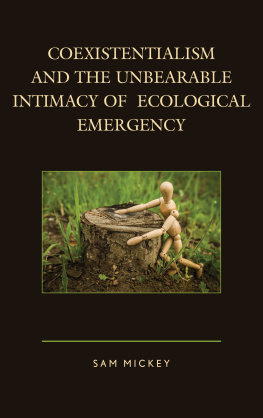

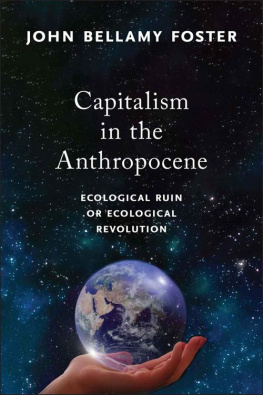
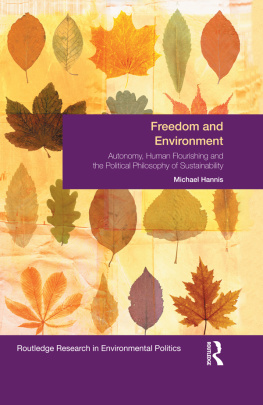


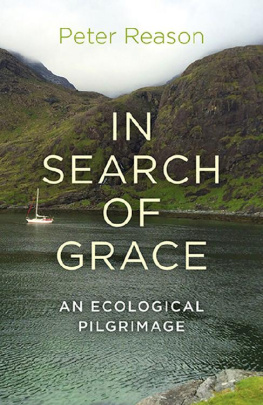
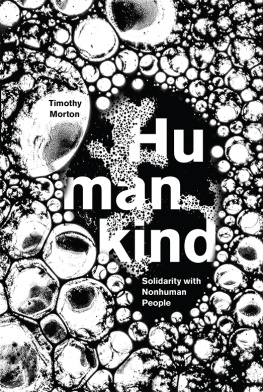
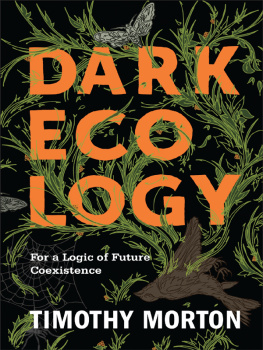
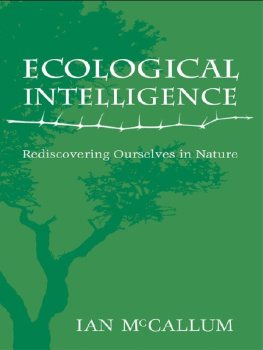
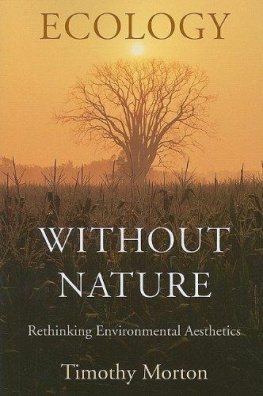
 TM The paper used in this publication meets the minimum requirements of American National Standard for Information Sciences Permanence of Paper for Printed Library Materials, ANSI/NISO Z39.48-1992.
TM The paper used in this publication meets the minimum requirements of American National Standard for Information Sciences Permanence of Paper for Printed Library Materials, ANSI/NISO Z39.48-1992.